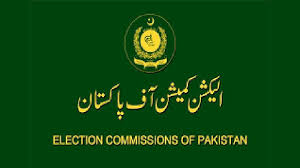The General Elections 2025 in Pakistan are set to be a pivotal moment in the nation’s political and social landscape. These elections come at a time when Pakistan is grappling with economic challenges, governance issues, and shifting regional dynamics. The outcome will determine the country’s trajectory for the next five years, making it one of the most anticipated political events in recent history.
The Political Landscape Leading to 2025
Overview of the Major Political Parties
Pakistan Tehreek-e-Insaf (PTI)
Despite facing significant hurdles after Imran Khan’s arrest, PTI remains a major force in Pakistan’s political arena. The party’s focus on anti-corruption and youth engagement continues to resonate with a large section of the population.
Pakistan Muslim League-Nawaz (PML-N)
PML-N, under the leadership of Nawaz Sharif and his family, aims to regain power by emphasizing economic stability and infrastructure development, two areas where they’ve historically performed well.
Pakistan Peoples Party (PPP)
PPP, led by Bilawal Bhutto Zardari, seeks to leverage its stronghold in Sindh while attempting to expand its influence in other provinces.
Emerging Political Alliances
The 2025 elections may witness unexpected coalitions as smaller regional parties and independents join forces with larger entities. Coalition politics could play a crucial role, especially in securing a majority in the National Assembly.
Key Issues at Stake
Economic Challenges
The economy is undoubtedly the biggest issue on voters’ minds. With inflation at record highs and the rupee under immense pressure, the public expects tangible solutions to alleviate their financial burdens.
Governance and Accountability
Pakistan’s citizens demand a transparent and efficient governance model. Corruption scandals have eroded trust in political institutions, and accountability remains a core voter expectation.
Social and Regional Issues
Healthcare, education, and poverty alleviation are critical areas where voters expect progress. Moreover, regional autonomy and ethnic concerns add another layer of complexity to the election.
Role of the Election Commission of Pakistan (ECP)
Ensuring Transparent Elections
The ECP has introduced measures such as electronic voting machines (EVMs) and biometric verification to ensure free and fair elections. However, their effective implementation will be crucial.
Voter Registration and Turnout
The ECP is actively working to increase voter registration, particularly among women and first-time voters. High turnout could significantly impact the election’s outcome.
The Role of Media and Technology
Impact of Social Media Campaigns
Social media has become a powerful tool for political campaigning. Platforms like Twitter, Facebook, and Instagram are being used extensively to reach younger voters.
Role of Traditional Media Outlets
Television channels and newspapers still hold sway, particularly in rural areas, where access to social media may be limited.
Voter Sentiments and Expectations
Urban vs. Rural Dynamics
Urban voters often prioritize economic reforms and governance, while rural areas focus on agricultural policies and basic infrastructure needs.
Youth Participation and Its Importance
With over 60% of Pakistan’s population under the age of 30, youth participation could be a game-changer. Political parties are vying to capture this demographic’s attention through targeted campaigns.
Potential Challenges and Risks
Political Instability
Internal rifts within major parties and uncertainty about leadership could impact election results and post-election governance.
External Influences and Geopolitical Factors
Foreign policy and relations with neighboring countries like India, Afghanistan, and China could influence voter perceptions and party strategies.
Security Concerns During Elections
Ensuring a peaceful voting process remains a priority, particularly in regions with a history of electoral violence.
Predictions and Possible Outcomes
Scenarios for Major Parties
While PML-N and PTI are likely to dominate the polls, PPP’s performance could be a wildcard, especially if they form strategic alliances.
Importance of Independent Candidates
Independent candidates often hold the balance of power in a hung parliament, making their role crucial in forming a government.
Lessons from Past Elections
General Elections 2018
The 2018 elections highlighted the importance of transparent processes and timely results. Issues like delayed announcements and voter irregularities need to be addressed.
What Needs to Be Improved?
Key areas for improvement include better voter education, enhanced security measures, and stricter oversight of campaign funding.
Conclusion
The General Elections 2025 represent a critical juncture for Pakistan. With pressing economic, social, and governance challenges, the stakes have never been higher. These elections offer a chance for Pakistan to chart a path toward stability and growth. The outcome will reflect the aspirations of millions of voters who are eager for meaningful change.
FAQs
- What is the significance of the 2025 General Elections in Pakistan?
The elections will determine Pakistan’s leadership and policies for the next five years, impacting every aspect of national life. - How is the Election Commission ensuring fair elections?
The ECP is adopting technologies like EVMs and biometric verification to ensure transparency. - Which political parties are the key players in these elections?
PTI, PML-N, and PPP are the major contenders, with smaller parties and independents playing a critical role. - What role does social media play in shaping public opinion?
Social media is a powerful platform for engaging voters, especially the youth, and disseminating campaign messages. - How can voters contribute to a transparent electoral process?
Voters can ensure transparency by actively participating, reporting irregularities, and holding parties accountable.


